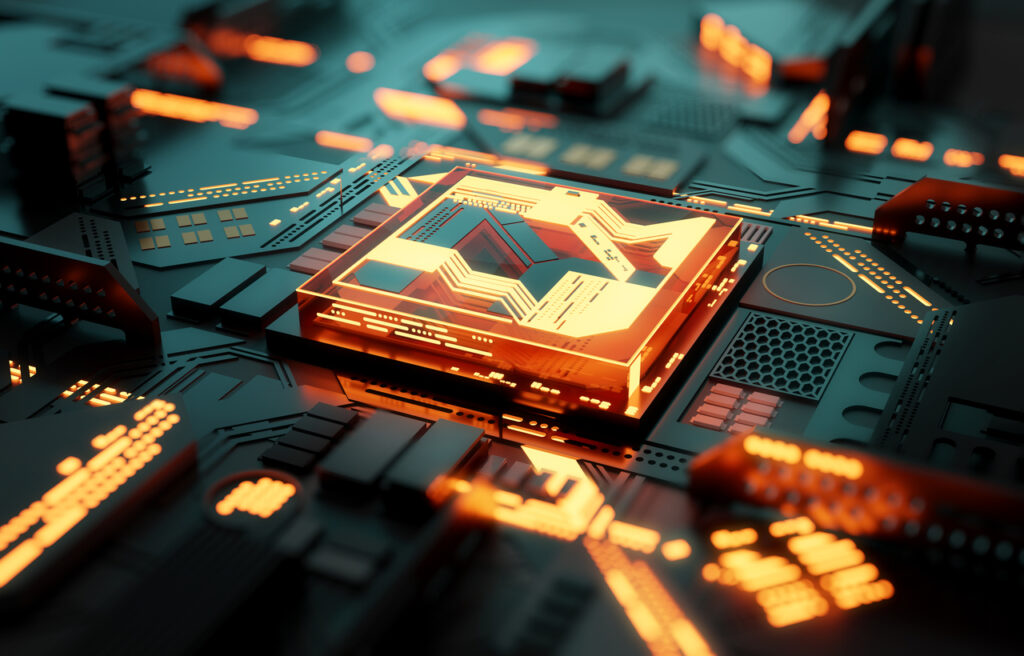Quantum computers are one of the most exciting and fastest-developing fields in modern science and technology. In quantum computing, the principles of quantum physics are used to create entirely new computational capabilities. Unlike classical computers, which operate on binary bits that can be either 0 or 1—off or on—quantum computers operate on qubits (quantum bits) that can be in multiple states simultaneously, somewhat similarly to how fuzzy logic works. In short, quantum computers solve certain tasks much faster than regular computers, supporting both scientific research and industry.
Countries and major corporations such as IBM, Intel, Google, and others are working on the development of quantum computers worldwide. Quantum computers already exist, but they are still in the development phase, and it is too early to talk about everyday use, although the pace of progress has been remarkable. Today’s quantum computers are large, expensive, and can perform only a few tasks. It is unlikely that quantum computers will replace home computers anytime soon; instead, they will primarily be used in data centers requiring extensive data processing and computational power.
How do quantum computers work?
Quantum computers rely on two key phenomena in quantum physics: superposition and entanglement.
Superposition is a quantum property that allows qubits to exist in multiple states at once. While a classical bit can be either 0 or 1, a qubit can be in both 0 and 1 simultaneously. As a result, quantum computers can process significantly more information in parallel compared to conventional computers.
Entanglement is another fundamental quantum physics phenomenon that plays a crucial role in quantum computing. When two or more qubits become entangled, changing the state of one qubit instantly affects the state of the other(s), regardless of the physical distance between them. This enables quantum computers to perform extremely complex calculations that surpass the capabilities of traditional silicon-based systems.
Within quantum computers, special quantum gates and logic networks are used to manipulate qubit states and implement quantum computing algorithms. These algorithms often involve intricate mathematical operations requiring immense parallel processing power and deep expertise in quantum electrodynamics.

Advantages and disadvantages of quantum computers
Quantum computers excel at certain types of computations, thanks to superposition and entanglement. They can solve complex mathematical and optimization problems beyond the capability of classical computers. For instance, a quantum computer can tackle large-number–based cryptographic challenges that would otherwise be prohibitively time-consuming. Researchers also anticipate benefits for cryptography and data security: while quantum computers can effortlessly break many of today’s encryption algorithms, they simultaneously offer unprecedented security options in the form of quantum cryptography—particularly quantum key distribution, which ensures fully secure private communications.
On the downside, quantum computing technology remains extremely complex and unstable. Building a quantum computer requires highly sophisticated and costly equipment, often operating at temperatures colder than outer space to maintain qubit states. Moreover, quantum computers are exceptionally sensitive to environmental factors—such as heat and electromagnetic interference—that can introduce errors and disrupt calculations. Consequently, significant research and development are still needed to enable the widespread use of quantum computers in their intended applications.

Applications of quantum computers
A technological revolution is anticipated in many areas, especially in cryptography and data security. Quantum computers can enhance security through quantum key distribution methods, helping to create encryption mechanisms that are practically unbreakable. Experts predict that in the coming years, quantum computers will be able to crack many widely used cryptographic algorithms—complex sets of mathematical operations—thereby spurring the invention of more effective countermeasures in the field of cybersecurity.
A key application area is scientific research in fields such as materials science and chemistry. Quantum computing makes it possible to simulate quantum systems that today’s conventional computers can barely model, paving the way for the discovery of new materials and chemicals. These breakthroughs, in turn, drive advances in medicine, energy, and industry.
Quantum technology is also crucial in metrology, the science of measurement. Compared to conventional measurement methods, quantum metrology offers higher accuracy and sensitivity, which is vital in scientific research, high-tech industries, and everyday life. By harnessing quantum states such as superposition and entanglement, quantum measurement devices can detect even the smallest changes in physical quantities—time, distance, temperature, and the strength of electromagnetic fields.
Quantum computers also contribute to financial analysis, providing enhanced methods for analyzing and forecasting financial markets, solving complex optimization challenges such as risk management and portfolio efficiency. Furthermore, quantum computers accelerate the development of artificial intelligence and machine learning by introducing new algorithmic approaches that make processing and analyzing large datasets more efficient.
In summary, quantum computers promise revolutionary advances in science, technology, and everyday life. However, their development and widespread adoption still require considerable research and further scientific investigation. Although quantum computing remains in its early stages, it holds enormous potential for impact and thus deserves broader attention—now and in the future.